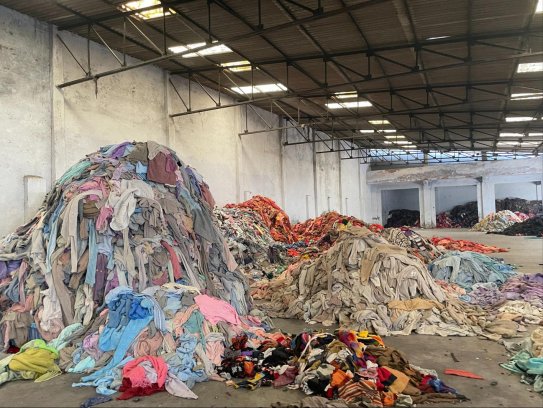
T-REX Project releases first white paper
Fashion for Good and partners launch new tool combining their findings.

12th November 2024
Innovation in Textiles
|
Amsterdam
Amsterdam-based Fashion for Good has partnered with Reverse Resources, Global Fashion Agenda, Circle Economy and Accelerating Circularity to launch World of Waste, a free online tool mapping global textile waste hotspots.
It provides aggregated regional data on waste volume, composition and type, enabling recyclers and innovators to efficiently identify and utilise textile waste resources worldwide.
Information on textile waste is currently fragmented, with data scattered across a multitude of organisations and platforms. This lack of centralised knowledge and standardised data hampers the industry’s ability to address and capitalise on textile waste.
The new World of Waste tool addresses many facets of textile waste and leverages a combination of diverse skill sets and a wealth of information to provide an overview of data points on waste quantities, types, compositions and other insights, as well as links to the original studies. With information on waste attributes, data collection methodologies, organisations involved, and a lens on upcoming studies for a region, the tool empowers users of textile waste, as well as stakeholders looking to further the industry’s knowledge base.
“We’re excited to launch worldofwaste.co, a tool providing crucial data on global textile waste hotspots,” said Katrin Ley, managing director of Fashion for Good. “This collaborative effort brings together key industry partners to empower recyclers and innovators with insights into waste volumes and compositions, helping turn waste into valuable resources and accelerating the shift towards a more circular and sustainable fashion industry.”
Over time, coverage will be expanded with the inclusion of additional countries and waste types.

Business intelligence for the fibre, textiles and apparel industries: technologies, innovations, markets, investments, trade policy, sourcing, strategy...
Find out more